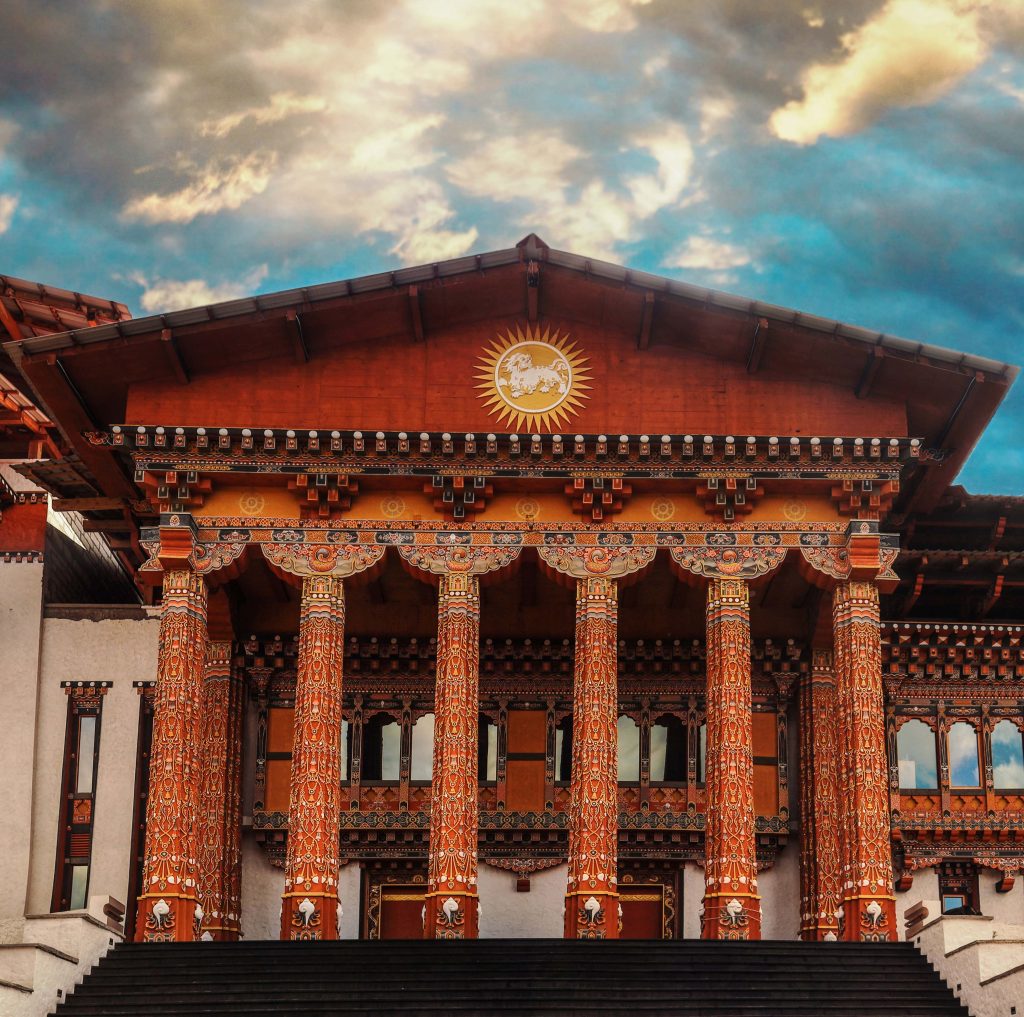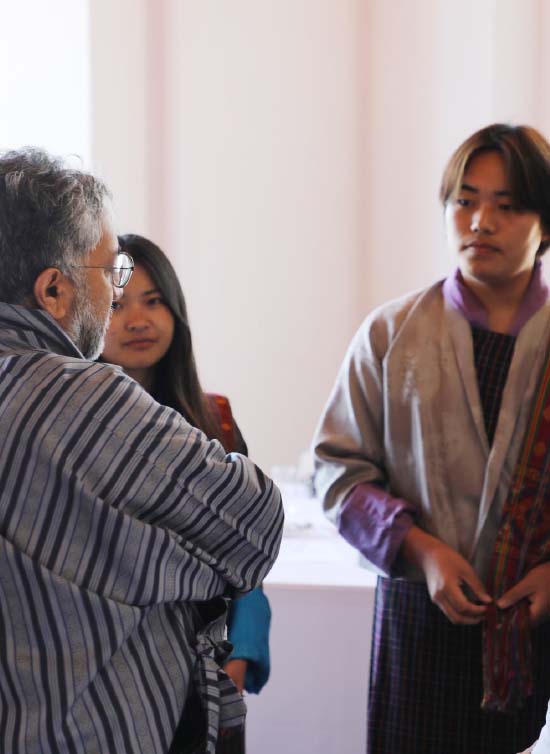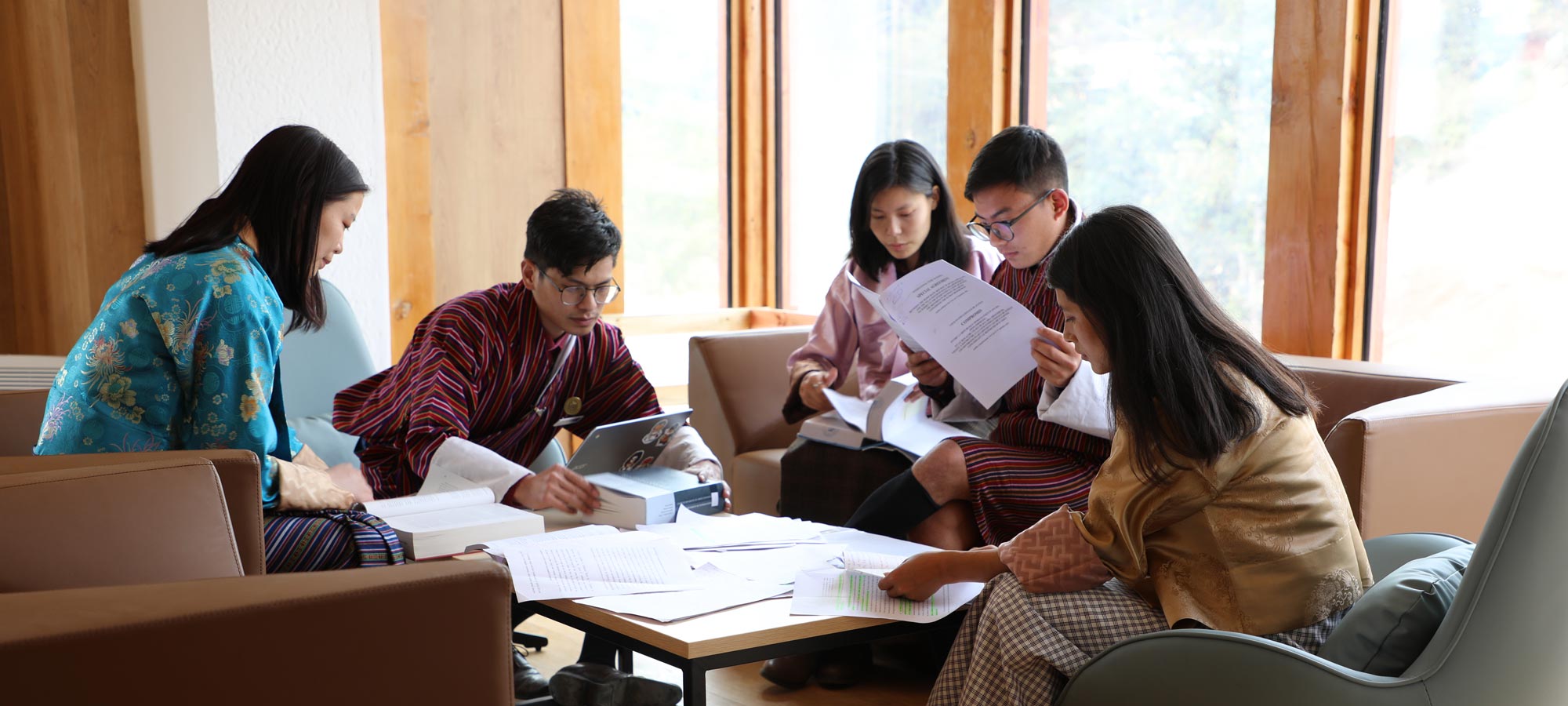JSW SCHOOL OF LAW’S INAUGURAL SUMMER SCHOOL
POSTED ON - Jun 9th, 2023

June 26 – July 10, 2023
Pangbisa, Paro, Bhutan
The JSW School of Law is very proud to invite you to attend its inaugural Summer Law School at its spectacular new green campus just outside of Paro, Bhutan. Students will have a choice of three courses taught by highly respected legal academics from leading law schools in Asia. The courses will be taught intensively over a two-week period.
Highlights
● Highly topical and engaging courses taught by skilled and experienced legal academics.
● An environment, for both classes and residence, that is simultaneously serene and stimulating in a cool and pristine mountain setting within the campus of the highest law school in the world.
● Interaction with international and Bhutanese law students in the classroom, residences, and field trips.
● Special exposure to unique aspects of Bhutanese society and its legal system through two field trips to Thimphu, the capital city,
and Punakha, the previous seat of government.
Summer School Overview
Courses
► Comparative Criminal Law
Professor Stanley Yeo, Centre for Asian Legal Studies, National University of Singapore
► Comparative Constitutionalism in Asia
Professor Arun Thiruvengadam, National Law School of India University, India
► Legal Argument and Narrative
Associate Professor Helena Whalen-Bridge, National University of Singapore
Program Details
The Program will admit a maximum of 25 students. Students must enrol in two of the three courses offered. The timetable is designed so that students enrolling in two courses will spend around 5 hours in class per teaching day with ample breaks in between. Students have a field trip on Fridays and a free day on Saturday. Each course is taught using the seminar method, in classes of 2 to 3 hours’ duration and totaling 23 class contact hours. They are assessed by continuous modes such as reading reflection papers, student presentations of readings, class participation, and a final take-home exam to be completed a few weeks after the summer school has ended.
Upon satisfactory completion, students will be awarded a certificate detailing the courses they have taken and the grades received. The certificate will be signed by representatives of the JSW School of Law, the National Law School of India and the National University of Singapore.
Course Details
Comparative Criminal Law
This course introduces students to the application of the theory and methodology of comparative law to substantive criminal law. It builds on a student’s prior knowledge of a basic course in criminal law by comparing selected principles of the law primarily with those found in Australia, Canada, England, India, New Zealand, Malaysia and Singapore. Topics covered include the fault elements of murder; consent in
rape; the defences of provocation and private defence; and the German and Dutch laws of homicide and attendant defences. The course will also briefly engage with the criminal law of Bhutan. The insights gained by students from comparative analyses of these topics will sharpen their appreciation of the strengths and weaknesses of the criminal law of particular jurisdictions, and enhance their ability to view law from wider theoretical, sociological and reform perspectives.
Comparative Constitutionalism in Asia
This course provides an overview of the theory and practice of constitutionalism in four countries that are located in South and South East Asia: India, Indonesia, Singapore and Sri Lanka. Two of these are among the largest, most pluralistic nations in the world, while the remaining two are small island states. All four nations experienced long periods of colonial rule, which continues to have a decisive impact on their post-colonial legal and constitutional orders. The course will be of interest to those who seek to study constitutionalism against larger societal debates about economic development, cultural values, and human rights. A student who has successfully completed this course will: (a) obtain a sophisticated understanding of debates in the field of comparative constitutional law and methodological approaches; (b) develop an advanced level of understanding of comparative constitutional politics to complement the knowledge of their own constitutional system; (c) obtain a more comprehensive grasp of the complexities that impact the constitutional health of a polity by focusing on a range of situations beyond the default cases; and (d) have a more nuanced understanding of the competing pulls and pressures of securing economic development, while seeking to entrench forms of liberal constitutionalism.
Legal Argument and Narrative
Narrative plays a prominent role in the persuasive presentation of facts in common law systems of litigation, but it is also a strong element in legal reasoning and judicial decisions. This course will examine the role of narrative in the law, consider why narrative is such an effective tool of legal persuasion, and explore some advanced techniques of narrative. Upon completion of the course, students should be familiar with the definition of narrative, and its general role in human understanding as well as the law; understand the qualities of a strong legal narrative generally, and be able to evaluate the strengths and weaknesses of particular legal narratives. They will also acquire skills of persuasive writing that apply to legal narrative, and be able to apply those skills to the presentation of a particular legal narrative.
Course Instructors

Professor Stanley Yeo
Stanley Yeo is a Visiting Research Professor at the Centre for Asian Legal Studies, National University of Singapore. He has specialised in teaching and researching on comparative criminal law in relation to common law jurisdictions for the past 40 years. He is a recipient of several awards for teaching excellence both in Australia and Singapore. His publications have been cited by the highest appellate courts of Australia, Canada, New Zealand, Malaysia, Singapore and the United Kingdom. His latest work, Criminal Law in Singapore (LexisNexis, 2021, with Neil Morgan and Chan Wing Cheong), draws on recent developments in Australia, Canada, England, India and Sri Lanka to enhance the discourse on Singapore’s criminal law. Stanley has served as a consultant to the Law Commissions of New South Wales and the United Kingdom.

Professor Arun Thiruvengadam
Arun Thiruvengadam is a Professor of Law at the National Law School of India University (“NLS”) Bangalore. He studied for a B.A., LL.B (Hons) degree and an LL.M at NLS, and has a doctorate (JSD) from New York University School of Law in comparative constitutional law. He has previously taught at the National University of Singapore and Azim Premji University, Bangalore. Arun teaches and researches in the areas of Indian public law, comparative constitutional studies, law and development, and welfare rights. He is the author of The Constitution of India: A contextual analysis (Bloomsbury: 2017) and has co-edited four other books, as well as several journal articles and book chapters.

Associate Professor Helena Whalen-Bridge
Formerly a trial attorney in the U.S. and counsel in Japan and Singapore, Helena Whalen-Bridge is an Associate Professor of Law at the National University of Singapore (“NUS”). She teaches and researches in the areas of Legal Ethics, Access to Justice and Legal Argument and Narrative. Helena has received NUS Teaching Excellence Awards and is an Expert in Education with the United Nations Office of Drugs and Crime. Her publications include “Negative Narrative: Reconsidering Client Portrayals” (2019) 16 Legal Communication & Rhetoric: Journal of the Association of Legal Writing Directors 151 (Teresa Godwin Phelps Award for Scholarship in Legal Communication); “Persuasive Legal Narrative: Articulating Ethical Standards” (2018) 21(2) Legal Ethics 136; and the edited book The Role of Lawyers in Access to Justice: Asian and Comparative Perspectives (CUP, 2022).

Planning Your Travel
There are two airlines flying into and out of Paro, the only international airport in Bhutan: Druk Air- Royal Bhutan Airlines and Bhutan Airlines. Both Airlines charge similar and fixed fares. Druk Air flies into Bhutan from India (Delhi, Kolkata, Guwahati and Bagdora), Bangladesh (Dhaka), Thailand and Singapore. Bhutan Airlines flies from India (Delhi and Kolkata), Nepal (Kathmandu) and Thailand.
Optionally, students can fly to Bagdora and travel by road to Jaigaon (border town), West Bengal, India, which will take approximately 4 hours. From the border town of Phuentsholing, Bhutan, it is approximately another 4 hours drive to Paro.
Applying for the Program
Who Can Apply?
To apply, students must meet the following criteria:
- students must have completed their second year or higher of an undergraduate law degree (LLB or JD).
- applicants must have a sufficient command of the English language for studying the required readings and participating in classroom discussions.
How to Apply?
To apply for the summer school program, download the application form HERE. You must duly fill the form and email it to summer.school@jswlaw.bt along with other relevant documents as specified in the form.
Deadline
- Application deadline: May 22, 2023.
- Selection results and payment of fees: May 30, 2023.
- Early applicants will be given an advantage in the selection process.
Fees
- Students from SAARC Countries (Nu.54,700 or Rs.54,700).
- Students from Other Countries (Nu.92,400 or USD1,100).
- The above fee structure includes a day trip to Thimphu, the Capital City of Bhutan. A visit to Punakha, the previous capital of Bhutan is an optional package, and students will have to pay an additional fee of Nu.8400 or USD100.
*Some scholarships are available to students on a need basis.
Visa Information
Upon confirming your enrollment, we will email you the visa application form. Note that you will be required to pay the USD40 visa fee separately.

Contact US
Dema Lham
+975 77114137
summer.school@jswlaw.bt
